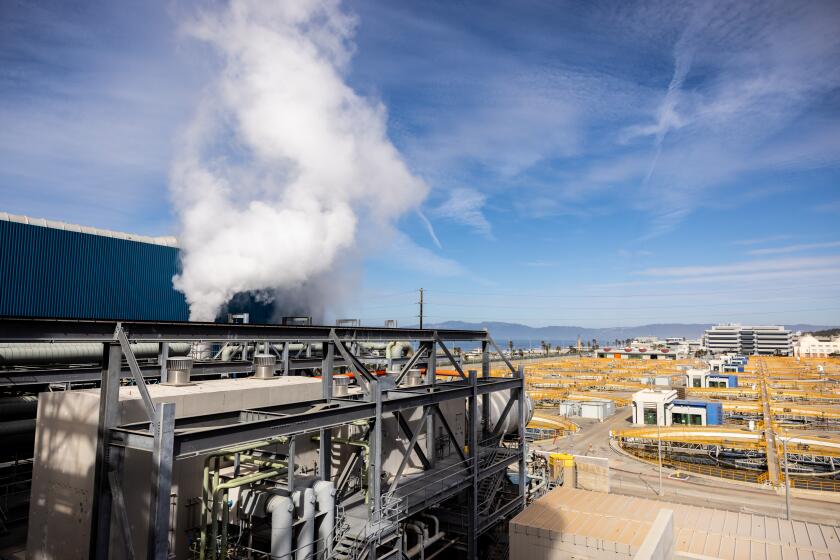SEC wants companies to disclose how climate change may affect their business

Companies would need to reveal detailed information about their greenhouse gas pollution under a new U.S. Securities and Exchange Commission plan, marking a major shift in how corporations would show they are dealing with climate change.
For the first time, the agency would require businesses to outline the risks a warming planet poses to their operations when they file registration statements, annual reports or other documents. Some large companies would have to provide information on emissions that they don’t make themselves but that come from other firms in their supply chain.
The proposal, which the watchdog was considering Monday, sets up a major clash with industry lobbyists and Republican politicians who argue the regulations are outside the SEC’s jurisdiction. Liberal lawmakers, environmental advocates and the SEC, however, say mom-and-pop investors need the information to make informed decisions.
“Over the generations, the SEC has stepped in when there’s significant need for the disclosure of information relevant to investors’ decisions,” SEC Chair Gary Gensler said in a statement. “Today’s proposal would help issuers more efficiently and effectively disclose these risks.”
The SEC would also require auditors or other experts to review the climate disclosures, which would be phased in over time.
Climate activists probably will cheer the agency’s decision to require larger companies to disclose some of their so-called Scope 3 emissions, which are generated by other firms in their supply chain or customers using their products. That information, which business groups say is very hard to quantify, wouldn’t be subject to an audit.
SoCalGas wants to build the nation’s largest green hydrogen system. It could cost billions.
Some companies, including oil giant Exxon Mobil Corp., have already begun disclosing those emissions.
The proposal follows months of internal debate among the agency’s Democrats. Ultimately, according to the SEC official, the agency settled on using the long-standing but vague concept of “materiality” to determine what information must be disclosed, a term that the agency hopes could make the rule less vulnerable to legal challenges.
Many of the plan’s elements align with a reporting regime known as the Task Force on Climate-Related Financial Disclosure, according to an SEC official. That voluntary framework asks corporations to disclose greenhouse gas emissions and report on how they manage global warming risks. Michael Bloomberg, founder and majority owner of the parent company of Bloomberg News, is chairman of that effort.
More to Read
Toward a more sustainable California
Get Boiling Point, our newsletter exploring climate change, energy and the environment, and become part of the conversation — and the solution.
You may occasionally receive promotional content from the Los Angeles Times.











